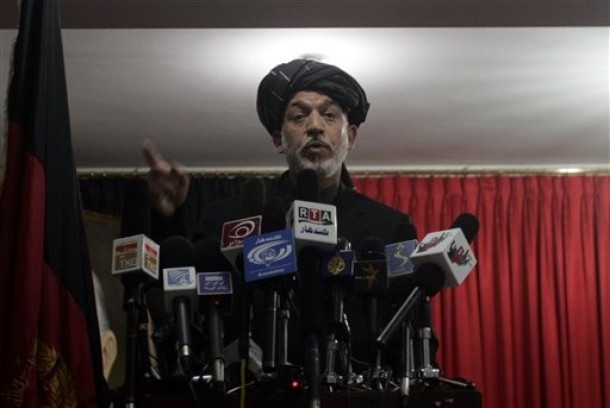What to do with Hamid Karzai.

Wayne White offers his thoughts on Hamid Karzai:
What transpires in Kabul all too often is over-emphasized, with foreign actors frequently consumed by developments there that will have less bearing than one may think on what is happening throughout the countryside, where much that happens in Kabul is commonly little known or understood. More importantly, Karzai himself is falling into a related pattern of believing that the more he can control events affecting the ruling elite, the more he can guarantee ultimate triumph for himself in the overall equation. In fact, in doing so, he probably has damaged further his own ultimate prospects as well as those of the mission. This also was characteristic of Diem and Thieu.Unfortunately, I doubt there are ways of redefining the mission or shifting our concentration of effort that can reduce significantly the negative impact of corrosive political behavior on the part of Karzai, his many cronies, as well as other Afghan politicians raised in a similar milieu. Our inevitable association with him one way or another--and his dominance over the Kabul political scene--will continue to cast a shadow upon the overall US, Allied and Afghan government effort to create a situation in which a withdrawal is possible that would leave behind a stable, positive political order--perhaps regardless of the withdrawal timelines chosen.
I think the constant harping on Karzai underscores the problematic nature of conflating a narrow mission of beating back al Qaeda - which has largely been driven out of the country anyway - with creating a stable Afghanistan. The administration insists you can't have one without the other, but at what point does stability in Afghanistan cease to be worth the price?
And that's why I think we ultimately will have to either "redefine the mission" or declare mission accomplished in 2011, irrespective of the political stability in Kabul. At the end of the day, do we really want Afghanistan to have an open claim on American resources?
(In that vein, Michael Cohen argues that it's all the fault of the mythology of the Iraq surge. Counter-insurgency has been seen to be a huge success there and so it's simply been exported to Afghanistan, when in fact it may be the wrong strategy for that country - and may not have been as decisive as we think in Iraq, either).
(AP Photo)











